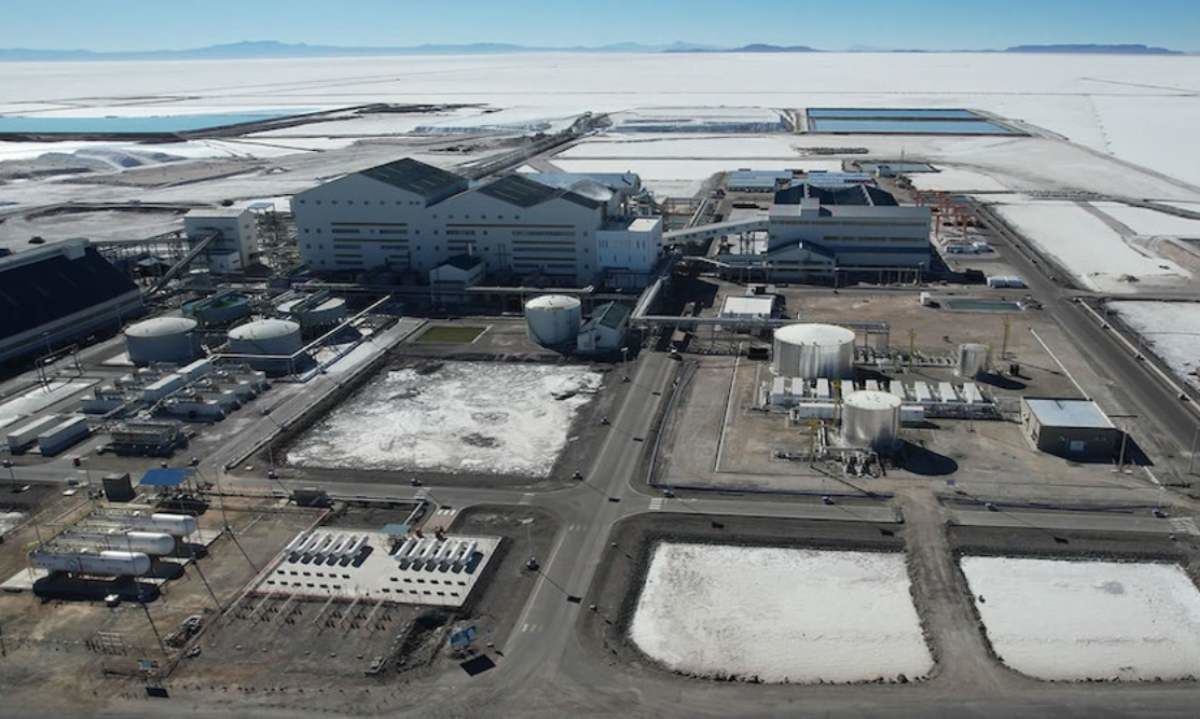
The Bolivian government maintains that these partnerships will fast-track lithium industry development, promising that the country will retain 51% of the generated profits. However, doubts and social resistance continue to challenge the feasibility of these ambitious projects.
Bolivia is facing growing opposition from civil society over contracts signed with Chinese and Russian companies late last year to exploit its vast lithium resources. Various community groups argue that these agreements offer no real benefits to local communities.
Parliamentary debates suspended
The controversy led the Bolivian Chamber of Deputies to suspend discussions on these contracts in February, pending a "thorough information-sharing process with civil society."
The agreements, worth approximately $2 billion, include a $970 million contract signed in September with Russian company Uranium One Group (UOG) and a $1 billion deal between Bolivia's Yacimientos de Litio Bolivianos (YLB) and Chinese firm CBC alone. The separate agreement with Citic Guoan Group is not part of this contract. Both agreements aim to build lithium processing plants capable of producing tens of thousands of tons annually.
Government pressure and warnings of delays
President Luis Arce has accused lawmakers of deliberately obstructing these key investments as part of a broader political strategy against his administration. He warned that if the deals are not approved this year, Bolivia could face a decade-long delay in lithium production.
According to Arce, if the country waits too long—until 2035 or 2040—lithium "will be history" and will be replaced by other clean energy sources such as green hydrogen. Omar Alarcón, president of YLB, echoed this concern, stating that failure to approve the contracts could delay industrial-scale production by up to 15 years.
Even if the agreements move forward this year, Bolivia would not begin large-scale lithium production until 2031, according to energy expert Sergio Hinojosa.
Questionable terms and unclear benefits
Civil society groups, environmental organizations, and leaders from the Andean region of Potosí—home to the Uyuni salt flat, one of the world's largest lithium resources—have voiced strong concerns. They argue that the deals lack transparency and could cause severe environmental damage and economic losses.
A major point of contention is the stark cost disparity between the two contracts. Reports indicate that the Russian project's cost per ton of lithium carbonate production is 2.4 times higher than that of the Chinese contract, with no clear justification for the difference.
Another concern is the feasibility of the UOG contract, which gives the company just 18 months to build a plant before the agreement expires—an unusually short timeline that could leave Bolivia saddled with unfinished infrastructure.
These concerns have fueled speculation about the transparency and economic viability of the agreements, leading to protests that interrupted a government conference on the contracts.
Public consultation and economic expectations
Under Bolivian law, foreign investors must conduct free, prior, and informed consultations with local communities and carry out comprehensive environmental impact assessments before industrial projects can proceed. The agreements must then be approved by the country's legislature.
In ongoing consultations, government representatives have stated that Potosí alone would receive estimated royalties of $800 to $900 million over 30 years, equivalent to $30 to $35 million annually.
The lithium dream: still a distant goal
Despite Bolivia's massive lithium resources, estimated at 23 million tons, the country has struggled to develop a viable lithium industry. Political instability, a state-controlled resource extraction model, and high magnesium levels in its lithium deposits have made large-scale production challenging.
Unlike neighboring Chile and Argentina, where lithium production is well established, Bolivia has made limited progress. The country's first industrial-scale lithium plant, inaugurated by YLB in late 2023, operated at only 17% capacity last year and is expected to reach just 23% in 2025.
Meanwhile, government officials, including Vice Minister of Energy Resources Exploitation Raúl Mayta, insist that the contracts "are not written in stone" and that they will continue to hold technical meetings with various sectors to address concerns.
The Bolivian government maintains that these partnerships will fast-track lithium industry development, promising that the country will retain 51% of the generated profits. However, doubts and social resistance continue to challenge the feasibility of these ambitious projects.




